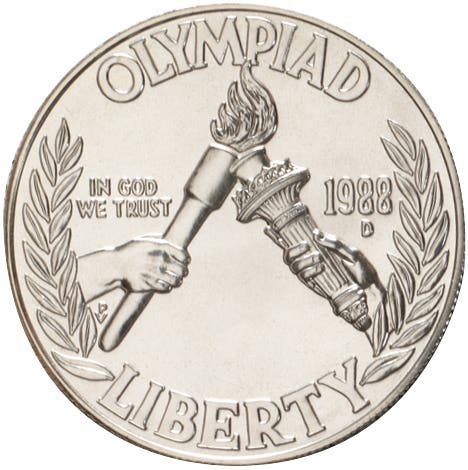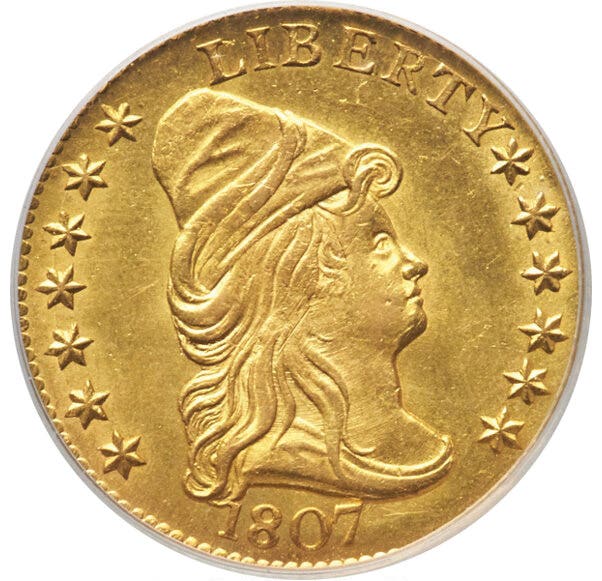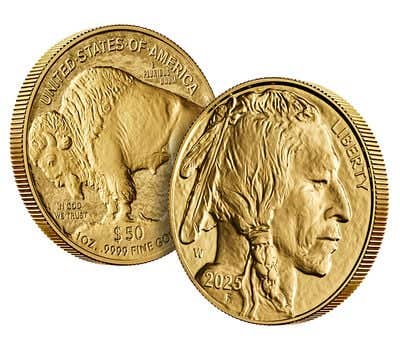Community Voice Responses (09/30/14)
From the Sept. 5 Numismatic News E-Newsletter: Do you think advances in science will eventually make gold worthless? Here are some answers sent from our e-newsletter readers to Editor Dave…
From the Sept. 5 Numismatic News E-Newsletter:
Do you think advances in science will eventually make gold worthless?
Here are some answers sent from our e-newsletter readers to Editor Dave Harper.
Possibly, but likely not for a long time.
Pat Heller seems a bit confused about nanotechnology. It can rearrange atoms in some amazing ways, but does not cause the high energy nuclear reactions needed to transmute elements. My guess is that extraction of gold from seawater will be practical before manufacturing significant quantities of gold in nuclear reactors.
Eric Holcomb
Bend, Ore.
It depends on your definition of eventually. In our lifetime, no; in the far off distant future, maybe.
As is the stuff of all science fiction, the writers do their research, and eventually the true science catches up. What is done rarely at enormous expense, eventually comes around to be commonplace.
While the current technology surrounding nanochemistry is concentrated on nanoconductors, (carbon nanotubes for example), and self-forming structures of like atoms/molecules, I think it will be a long time coming before scientists can create an alloyed metal or transform one molecule into another. To break down a common molecule into its atomic components releases an enormous amount of energy (which must be contained), and to put the atoms back together in another molecule requires an enormous amount of energy, and releases even more (which must be contained).
Nuclear fission is capable of reducing heavier weight elements into one lesser weight heavy element, and one lighter weight element, (usually an inert gas or reactor poison). Nuclear fusion is capable of converting heavy hydrogen into helium and not much else.
Bottom line, I wouldn’t be worried about a glut in the gold supply in the near future.
I am more worried about the carbon nano-guys producing perfect diamonds, than I am about modern day alchemists producing gold from more common elements. Although this can be done the hard way, with carbon, heat and pressure in the lab, I think nanotechnology will make it outrageously cheap and in the not-too-distant future.
I am a 30-plus-year experienced electrical engineer, a 41-year experienced coin collector, and 33-year married provider of jewelry for my wife.
David R. Anderson
Rock Port, Mo.
Yes. I think some time gold will not be a valuable commodity due to technical advances and now countries use fiat currency rather than based on specie. Plus it states in the Bible in the future gold will be thrown in the streets. So far the Bible has been 100 percent in its predictions.
Furthermore, gold is frequently used to launder money and is currently popular with the all the warring factions in the Middle East such as ISIS. They use gold to buy weapons to wage their jihad murder and mayhem. Elimination of gold would greatly cripple their ability to buy arms.
Gold? No thanks, you can keep it. Send me a rare brass or aluminum Arizona trade token anytime.
Bob Temarantz
Tucson, Ariz.
Yup, but you can get rich on developing a transmuted element detector!
Wait, just use a Geiger counter!
Radioactive gold. It’s 1980 all over again!
Michael Jacobs
Lake Zurich, Ill.
Gold or silver replicators are pure fantasy. Why make it? Let’s make armies to fight our wars. Better yet, let’s make food why grow it. Let’s make Herbert Hoover for a honorable president. The last 10 have been losers. Better than that, we can make 1933 $20 dollar gold pieces and hand them out like candy. Let the Secret Service deal with that. These dimwits can’t even find a cure for cancer! They probably don’t even know where to buy a light bulb or even a battery, much less make a “replicator.” Good luck to the eggheads; they don’t appreciate fine art.
Arthur Solvang
Brooklyn, N.Y.
Gold will never lose its value. Gold has always meant wealth. If there is any “artificial gold,” I will believe it when I see it.
Ginger Rapsus
Chicago, Ill.
I do hope that science does not make this commodity worthless. In the 1950s and 1960s there was talk of making gold different ways. If so, maybe sometime in the future it can happen. The price will fall, as with other precious metals.
I’ve been wrong in the past, as will I in the future. Please, prove me wrong here! It can be a detriment to the hobby. Financially, coin dealers can go bust, should I be right. So, once again, let me be wrong here.
Gary Kess
Berkel en Rodenrijs, Netherlands
You want my opinions? OK, my opinions are that Pat Heller’s article is loony and ridiculous to the point where the editor should be embarrassed for publishing such a thing.
Nanotechnology has nothing –nothing – to do with transmutation of elements. Heller might as well have written that Tesla’s advances in automobile technology make him wonder how soon his children will get into their car for picnics on the moon. It doesn’t matter what Tesla is doing; there are “just a few” barriers to getting picnics on the moon that no changes to car engines will ever be able to address.
Similarly, there are “just a few” barriers to transmutation of elements that no changes to nanotechnology will ever be able to address. They are entirely different problems that only a fool or a con would mention in the same sentence.
I don’t know Heller personally, but on the face of things it looks like he’s more a con than a fool. Nearly one-third of his article consists of nothing but references to his other services and publications. So by snowing you with the rest of his nonsense, he’s gotten you to give him a pile of free advertising. That reflects far worse on you for having been tricked than on him for figuring out how to trick you.
Jonathan Brecher
Boston, Mass.
No, unless it was impossible to distinguish real gold from artificially produced gold. Artificial diamond has not made true diamond worthless.
Joseph A. Violante
Washington, D.C.
Counterfeits are already very advanced, and will shortly become perfect. If it is worthwhile to do so, dies can be made “perfect” to resist detection at whatever level of magnification the counterfeiters wish to specify as their criteria. Many counterfeits are already circulating in the numismatic world as genuine. It will no longer be possible to tell a fake... and so rarity will have to give way as a determiner of value. As with other types of antiquities, a proveable provenance and a paper trail will become more and more critical.
But there will never be a cheap way to transmute other elements into gold. Even in the Star Trek universe, the replicator (which is simply a subroutine program using transporter technology) uses a physical store of elemental building blocks to create the desired object. Some things cannot be replicated, even on the Enterprise, like bars of gold-pressed platinum.
Even with starships in space, gold will not become common. The processes that create it occur only in the core of a supernova explosion. Those processes will forever be beyond the capacity of mankind to manipulate.
Even on earth gold is widely disseminated at the parts per trillion level, and would never be brought into the parts per million (mineable) level except for the action of water. All gold deposits known exist because of water, not just placers but also vein and disseminated (Carlin) type deposits. Gold will not be found in mineable grades on the asteroids. It will be mineable only on water worlds, and this is the only one we know about.
If there are truly aliens coming to this planet, they may be coming for the gold.
Tom Maringer
Springdale, Ark.
Gold hasn’t been used as money in the United States for over 70 years. It has value only because people think it has, and people think it has because ancient kings decided that it did. In other words, gold is a commodity with no more inherent worth than tobacco, wampum beads, large stones, labor or anything else that someone decides has value.
We don’t spend gold any more; we sell it for actual money. Since gold’s value is largely psychological even now, I don’t think advances in science are likely to make it worthless any time soon.
William Eckberg
Address withheld
While my basic knowledge of physics says that this would never be economically feasible, it would be a mixed bag. If you buy bars or “ paper “ bullion, you’re screwed. If you only buy numismatic gold (coins) graded and slabbed, like myself, I think that we will be fine. If intrinsic value collapses, you will always have numismatic value. As collectors, we’ll be fine.
Bill Rodgers
Dallas-Fort Worth, Texas









